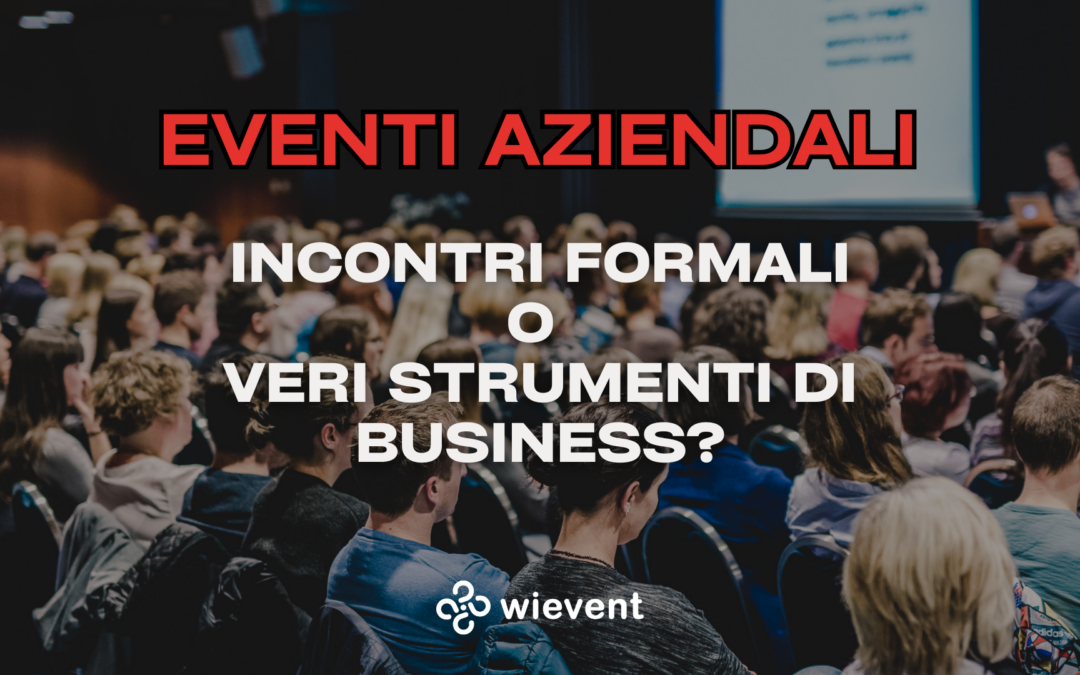Corporate events used to be just formal, routine meetings, static occasions that left little behind. Today, however, they represent essential strategic business tools.
They are an opportunity to strengthen corporate culture, promote products or services, encourage team building, and strengthen relationships with customers and partners. Organizing a successful event requires careful planning and a deep understanding of the goals to be achieved.
They can take different forms, from an internal meeting to a large convention, but they all share one goal: To create a valuable experience for participants.
The most common types of corporate events are:
- Meetings and conferences: Formal meetings to discuss strategies, internal updates, training, and networking.
– A tech company holds an annual meeting to present innovations to employees and partners. - Team building and workshops: activities designed to strengthen bonds among colleagues and improve collaboration.
– A marketing agency organizes a day of escape room and interactive quizzes to stimulate team creativity. - Product launches: events dedicated to introducing new products or services to the market; attract customers and investors.
– An automotive brand launches its new car model with a dedicated event that includes a test drive. - Fairs and Exhibitions: places to showcase products or services to a wider audience and interact with potential customers.
– A software company participates in an industry trade show, offering augmented reality experiences to showcase the functionality of its product in an innovative way. - Networking Events.: opportunities to build and strengthen relationships with partners, customers, and other stakeholders.
– A startup incubator organizes an exclusive happy hour between investors and young entrepreneurs. - Celebration and award events: motivate staff and strengthen a sense of belonging.
– An automotive company holds a gala evening to reward top salespeople with personalized awards
But why should a company invest time and resources in organizing events? Let’s find out.
What are corporate events for?
Corporate events are not just meeting occasions, but strategic tools for company growth.
Let’s look at the main benefits:
Strengthen the team and improve collaboration 1.
A close-knit team is a more productive team. Team building events and interactive activities help employees get to know each other better, creating a more harmonious work environment.
Increase involvement and motivation 2.
A well-structured event conveys energy and passion. Rewarding successes, sharing goals, and celebrating milestones increases team engagement and motivation.
Improve internal and external communication 3.
Whether it is a strategy meeting or a client meeting, an event helps deliver clear, engaging and effective messages.
4. Promoting the brand and building relationships with customers and partners
Corporate events are not just for internal staff. Organizing a conference or trade show can help the company position itself in the market, strengthening brand awareness.
5. Innovate and make the company more competitive
Using modern formats, digital technologies and innovative approaches allows the company to stand out from the competition by offering unique and memorable experiences.
Conclusion
A successful event is measured not only by the perfection of the organization, but by the impact it has on participants.
- If people feel involved, they will return to work with more enthusiasm.
- If the event reflects the corporate identity, it will reinforce the brand culture.
- If interaction is at the center, it will create connections and opportunities for growth.
That is why it is important to think beyond simple planning and take a more dynamic, interactive approach tailored to your business.
If you want to discover innovative strategies for your corporate events, contact us for a free consultation!

